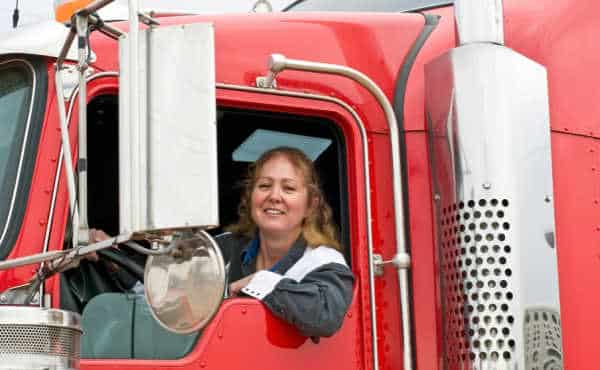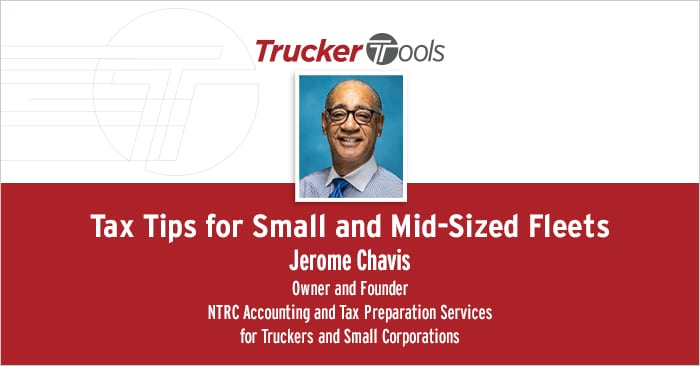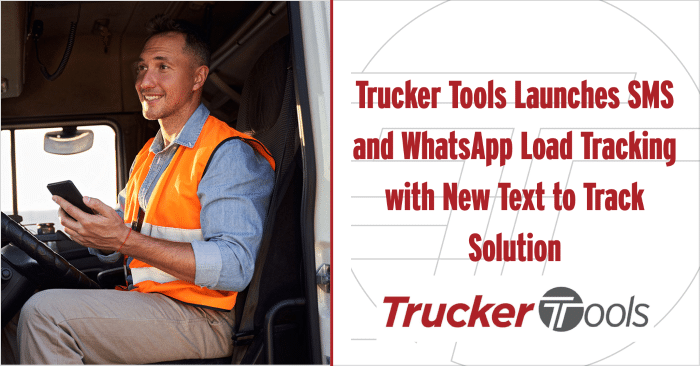If you’re like many small and mid-sized fleet owners, you may break out in cold sweat when you think about filing taxes for your business. Tax planning and filing as a trucking company can be complicated, which is why we recently spoke with Jerome Chavis, owner and founder of NTRC Accounting and Tax Preparation Services for Truckers and Small Corporations in Stone Mountain, Ga. For the last 12 years, Mr. Chavis and his team at NTRC have been helping businesses like yours navigate the ins and outs of tax preparation and filing. When we interviewed Mr. Chavis, we asked him about some of the most common mistakes that small and mid-sized trucking businesses often make with tax filing and preparation. Check out Mr. Chavis’ tax tips for small and mid-sized fleets below.
1. Develop a Bookkeeping System
“Truckers are notorious for bad bookkeeping, so that’s probably one of the biggest areas of support that we provide,” said Chavis. “We often start by just trying to get a handle on organizing and properly representing financial activity within the business. Truckers are so involved in driving, they don’t really have time to do a lot of proper bookkeeping and capturing of receipts. For those who are comfortable with technology, we recommend 1Tap or QuickBooks for tracking expenses. For those who aren’t comfortable with technology, we try to meet them where they are, understand what their habits are like and then come up with a system that’ll help them.”

2. Verify Business Entity Type (LLC, S-Corp, C-Corp, Sole Proprietor)
“One of the biggest mistakes we see is around business entity,” Chavis said. “We see truckers or fleets who think they’re under one entity and they’re really under another entity. They may think they’re an S-Corp, but they’re a partnership or a one- member LLC. I can’t tell you how many times we have seen previous tax returns from owners who have been filing the wrong tax return for the last 10 years. That’s one of the biggest things I’ve seen, particularly this year.”
3. Avoid Fines by Making Quarterly Estimated Tax Payments
“A lot of truckers don’t understand and therefore don’t really participate in quarterly estimated taxes,” Chavis shared. “In addition to having a tax balance, they end up getting fined at the end of the year and end up having to come up with a huge check at the end of the year to pay the IRS.”
4. Know the Difference Between Income and Repayment of Initial Shareholder/Owner Contribution
“A lot of businesses when they start out, they might not have a lot of money, so the owner might personally fund the business until the business starts to generate its own income,” Chavis said. “Well, those personal funds that were given to the business can be paid back because that loan has already been taxed. A lot of times when owners are taking money out the business, it looks like it’s income but it might just be the repayment of any initial shareholder or owner contribution.”

5. Report Your Income Accurately
“Be sure that the income you are reporting matches the income other people are reporting to the IRS,” advised Chavis. “One of the biggest triggers for a potential audit is the ‘under-reporting of income.’ If you show on a tax return that you brought in $600,000 in income, but the IRS shows 1099 reporting from others of $750,000, that will automatically trigger at minimum a dreaded IRS letter and could reject in an audit.”
6. Use an Accountant Who Knows the Trucking Industry
“Try to find somebody who you can trust and that has experience in the trucking industry,” said Chavis. “We’ve been in business since 2003. We’re a small practice, but a family oriented one and we’ve been doing trucker and real estate niche taxes for 10 or 12 years. We have CPAs, bookkeepers and folks with varying degrees of experience available. We’re comfortable providing a full suite of services and product offerings in those specialized niches. We’ve got some third-generation clients where it’s the original client’s grandkid, and that’s pretty cool because you’ve known them their whole life.” To learn more about NTRC Income Tax and Accounting, visit NTRC Accounting and Tax Preparation Services for Truckers and Small Corporations.






